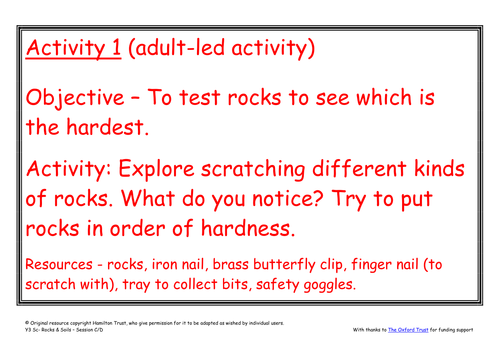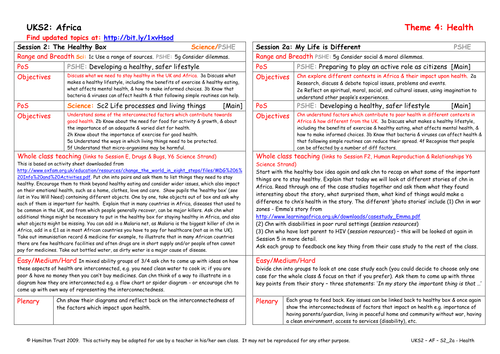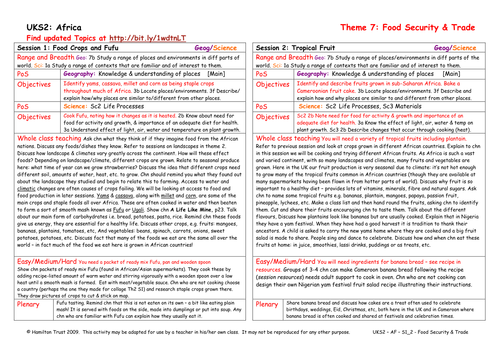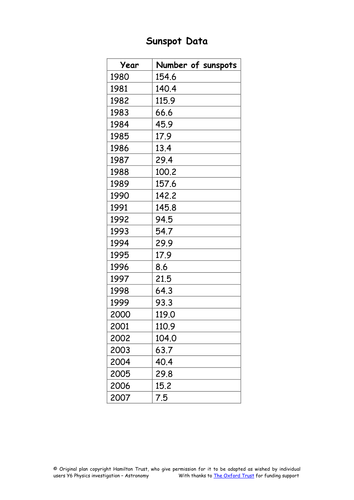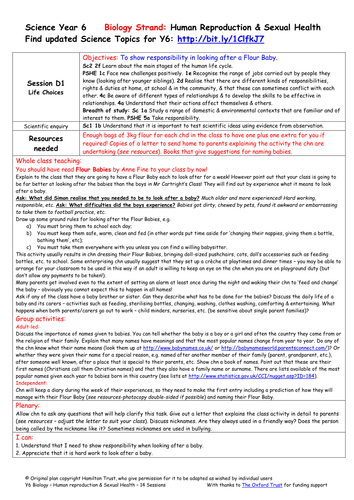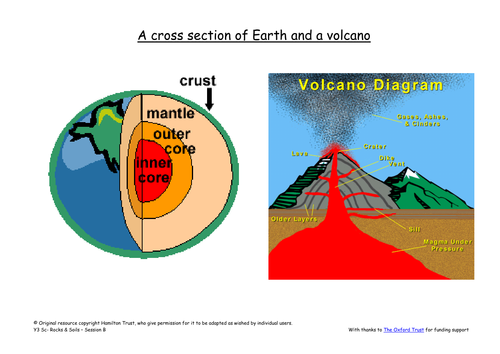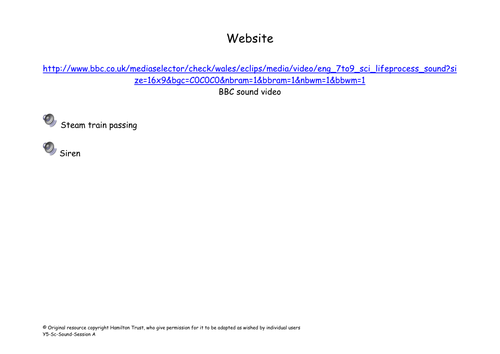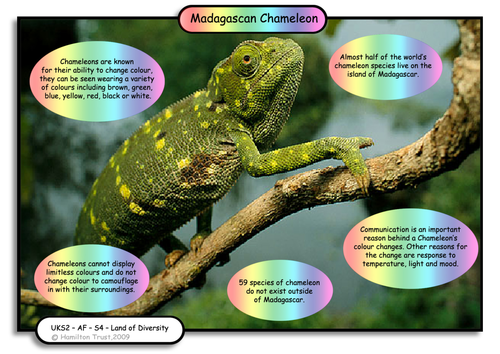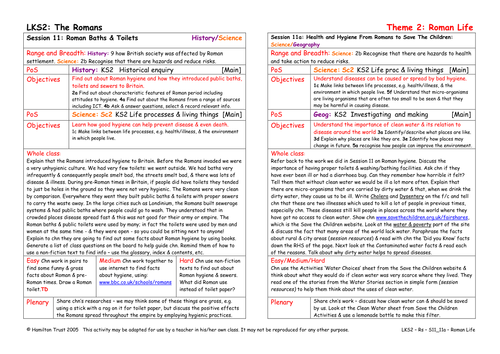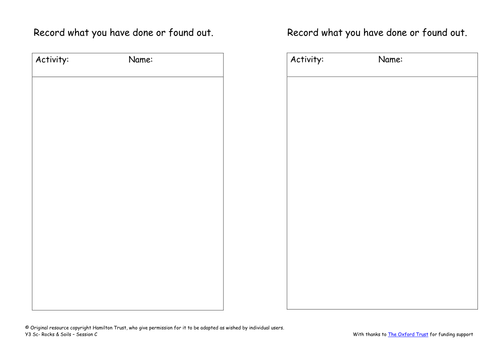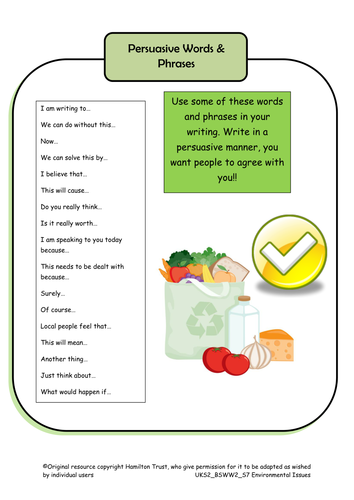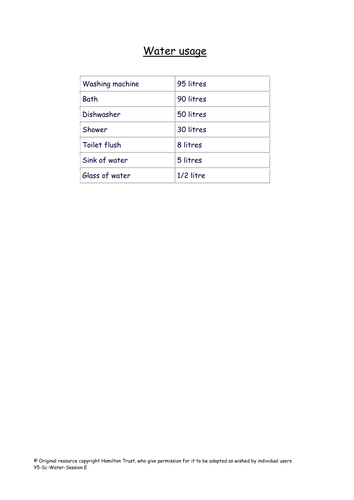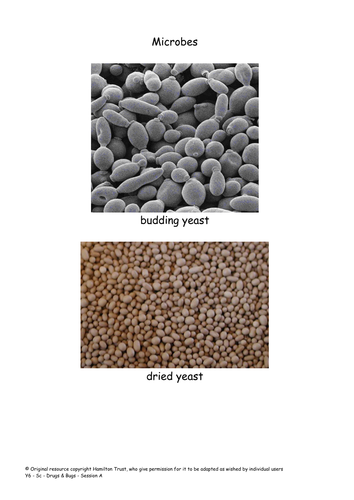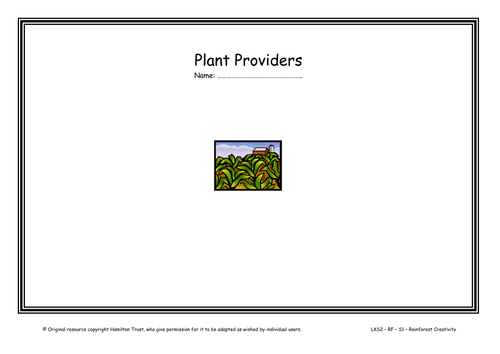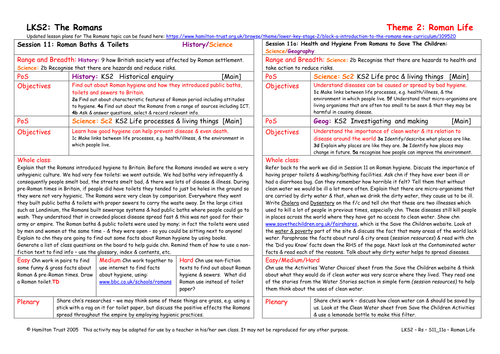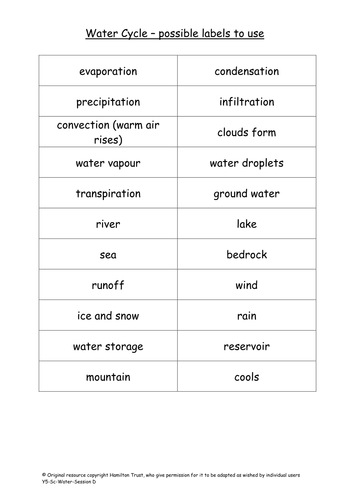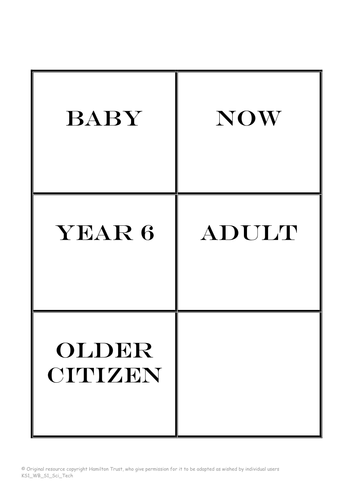
397Uploads
10045k+Views
11646k+Downloads
Elementary science

Explore rocks further
Take part in more practical workshop activities including separating sand and stones by sieving, using ICT to research rocks, looking up vocabulary in dictionaries, sorting and naming rocks and testing the effect of vinegar on rocks.
Suitable for Y3 pupils.

The Healthy Box
Explore with Children the basis needs to ensure good health, and how they are interconnected using the concept of a ‘healthy box’.
Suitable for years 5 and 6.

Tropical Fruit
In this session, we identify and describe fruits grown in sub-Saharan Africa. The need for fruit as part of a healthy diet is discussed and children taste some tropical fruits. Children follow a recipe to make Cameroon banana bread.

The sun
Show children that white light is actually a mixture of colours and that the Sun provides heat! Investigate sunspots using shadows and the rotation of the earth around its axis. Finally draw a graph of the number of sunspots a year and identify a pattern.
Suitable for Y6 pupils.

Life choices
Session 1 - Think about all the different relationships that children have/will have with other people, leading to a discussion about marriage. Research marriage customs in different cultures. Children return to timelines and predict hopes and expectations for their future lives.
Session 2 - Think about all the different relationships that children have / will have with other people, leading to a discussion about marriage. Research marriage customs in different cultures. Children return to timelines and predict hopes and expectations for their future lives.
Suitable for Y6 pupils.

Three states of matter
Solid, liquid or gas? That is the question that kicks off this block of six sessions. Children investigate the properties of the three states and sort some familiar and unfamiliar objects into them. Suitable for Y5 pupils.

Under our feet!
Explore what is under our feet. Draw and label a cross section of the Earth. Discover the three main rock types. Test the permeability of different kinds of rocks. Find out information from websites.
Suitable for Y3 pupils.

Introduction to sound
Find out what children already know about sound. Listen carefully to sounds in the environment. Children try a circus of activities to describe sounds, suggest how musical instruments make sounds, why animals prick up their ears and why some have very large ears.
Suitable for Y5 pupils.

Madagascan Chameleon
Using Madagascan Chameleons as a model, show children how they can focus upon particularly interesting aspects of their chosen creature. They will need to write an explanation of this feature. Model this using the chameleon’s camouflage.
Suitable for years 5 and 6.

From Romans To Save The Children
Children continue work on health and hygiene in relation to clean water and the diseases caused/transmitted by dirty water. Using the Save the Children website, children discover the ways in which this issue is being tackled in different parts of the world.
Suitable for years 3 and 4.

Rock investigations
Learn some key vocabulary about rocks. Take part in a workshop offering a range of activities including testing hardness of rocks, sorting rocks, finding information, drawing rocks and thinking about how pebbles and sand are formed.
Suitable for Y3 pupils.

Shopping Bags
Food was bought locally and regularly in small shops after WW2. Assistants picked and weighed food for you, there was very little packaging as paper bags or your shopping basket were used. Children write a letter to persuade shops not to use plastic bags.

Water in everyday life
Remind children how important water is to all living organisms. Look at how little of the water present on earth is fresh and therefore drinkable.
Children investigate how animals and plants adapt to arid conditions and create posters to encourage us to save water.
Suitable for Y5 pupils.

Micro-organisms
Introduce children to bacteria, viruses and fungi as micro-organisms. They are living organisms and are very small. Investigate how the numbers of bacteria grow by simple division and gain an understanding of their size compared to a metre.
Suitable for Y6 pupils.

Plants with a Purpose
What have plants ever done for us? In this session children find out that plants are more useful than we might imagine.
After discussing all of the benefits and recording them, children start to consider how what plants give us can be used in more creative ways.

Earth, Moon and Sun
The world is in their hands in this session along with the Moon and the Sun! Children create drawn scale models of each and use a trundle wheel to measure scaled distances between them.
Suitable for Year 5 pupils.

Magnetic Attraction and Repulsion
Following session 7, children look at which types of material are attracted by magnets and which are not. Using an experimental approach, they also investigate the two magnetic poles on a magnet and what happens when like is placed against like, etc.
Suitable for years 3 and 4.

Roman Baths & Toilets
In this session children look at how the Romans improved hygiene arrangements across the empire by providing clean water and drains for sewage. Children investigate Roman toilets and baths, and discuss the positive effects of these innovations.
Suitable for years 3 and 4.

Water cycle
Children explain how evaporation and condensation are involved in the water cycle and describe all the water cycle processes. Identify the different forms of water that are seen in various weather conditions and the different clouds that are seen in our skies.
Suitable for Y5 pupils.

Journey of Life
How have we changed since we were babies? How will we change as we grow up? Children explore these questions by thinking about the different stages of life and recording their thoughts in zig-zag books.

